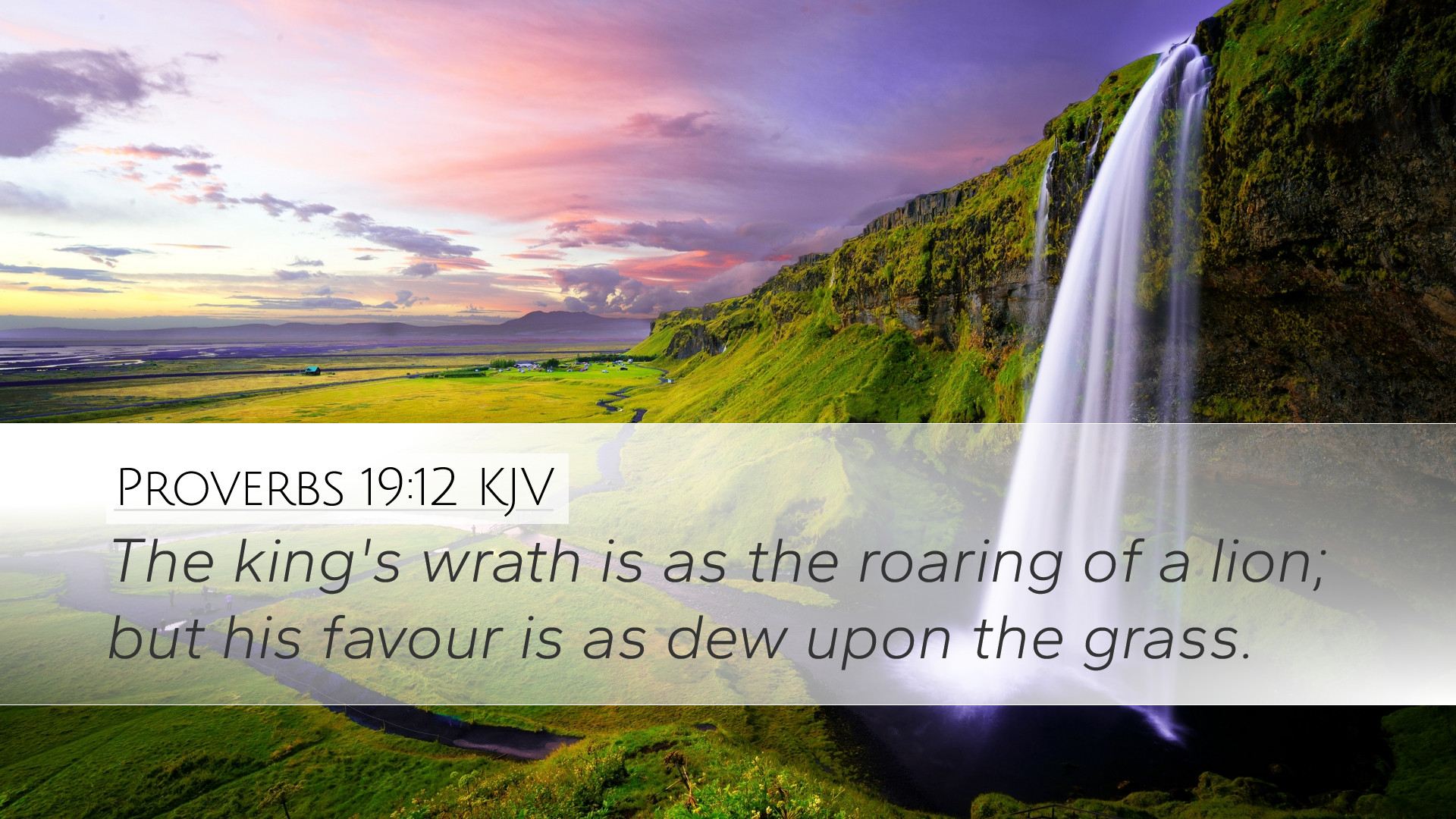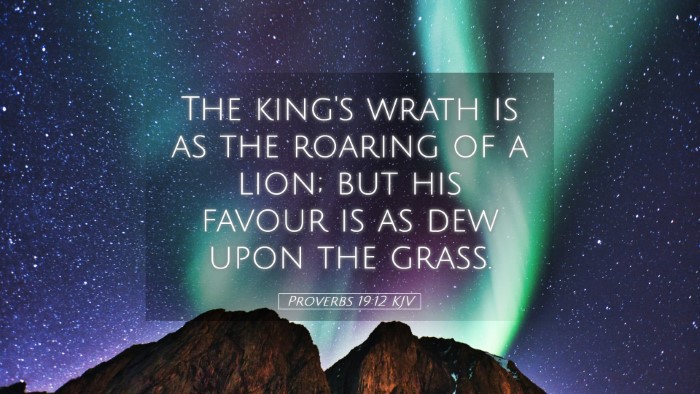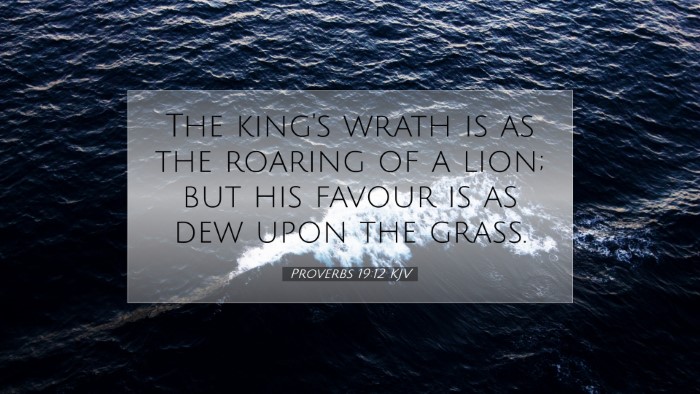Commentary on Proverbs 19:12
Verse Text: "The king's wrath is as the roaring of a lion; but his favor is as dew upon the grass."
Introduction
The Book of Proverbs is rich in wisdom literature, offering insights that span various aspects of life. Proverbs 19:12 presents a vivid contrast between the king's wrath and his favor, utilizing dynamic imagery to convey the weight of authority and the essence of mercy. This commentary synthesizes insights from noted theologians and commentators to unpack the depth of this verse.
Exegesis of the Verse
In Proverbs 19:12, we find a poignant metaphor regarding the nature of leadership and authority. The king, as a sovereign figure, expresses his will through both wrath and favor.
King's Wrath as a Roaring Lion
- Imagery of Power: The imagery of a lion evokes strength, dominance, and the potential for destruction. Matthew Henry emphasizes that the king's anger can have devastating consequences for those who find themselves on the receiving end, illustrating the severity with which a ruler's displeasure can impact the realm.
- Impact on Subjects: Adam Clarke points out that the effects of a king's anger are not confined to the immediate context but can ripple throughout his kingdom, leading to fear and unrest among subjects. The roaring lion signifies an uncontrollable force, much like a ruler whose wrath goes unchecked.
King's Favor as Dew on Grass
- Symbol of Blessing: In contrast, the favor of a king is likened to the refreshing dew that nourishes the grass. Albert Barnes notes that dew is often associated with blessings, sustenance, and the divine favor that leads to prosperity and growth. It brings life and vitality, contrasting the destructive nature of wrath.
- Accessibility of Favor: Clarke highlights how favor, like dew, is often quiet and subtle, yet immensely powerful in its effects. In agrarian societies, the early morning dew is crucial for crops, symbolizing how the king's approval can promote flourishing within his domain.
Theological Reflections
This verse encapsulates broader theological themes of authority and grace:
- The Sovereignty of God: The king's authority reflects God's ultimate sovereignty over creation. Just as a king has the power to bless or curse, God reigns with the ability to give life or take it away. The wrath of the king serves as a warning about the seriousness of rebellion against authority, while his favor illustrates the beauty of divine grace.
- Human Leadership: This verse serves as a reminder to those in leadership positions. It warns against the misuse of power and underscores the necessity of wise and just governance. Leaders are to be like nourishing dew, promoting well-being among those they govern, rather than instilling fear through unchecked wrath.
Practical Applications
For pastors, students, and theologians, this passage serves several practical implications:
- Leadership Attributes: Leaders are called to embody the qualities reflected in the dew—their favor should promote growth and health within the community.
- Pastoral Care: Pastors can draw from this imagery when considering their approach to church discipline, focusing on fostering a community that thrives in grace rather than fear.
- Emotional Impact: The emotional dynamics involved in the expression of wrath and favor are critical in developing healthy relationships within any organization. Understanding the consequences of a harsh tone can lead to more thoughtful communication.
Conclusion
Proverbs 19:12 not only warns about the potential destructiveness of unchecked authority but also expounds upon the nature of true leadership characterized by grace. It invites leaders to reflect on their impact, urging them to cultivate environments that reflect favor, much like refreshing dew, rather than instilling fear. In this way, the verse becomes a timeless reminder that how one wields authority can either uplift or devastate, urging us all to seek wisdom in our interactions with others.


